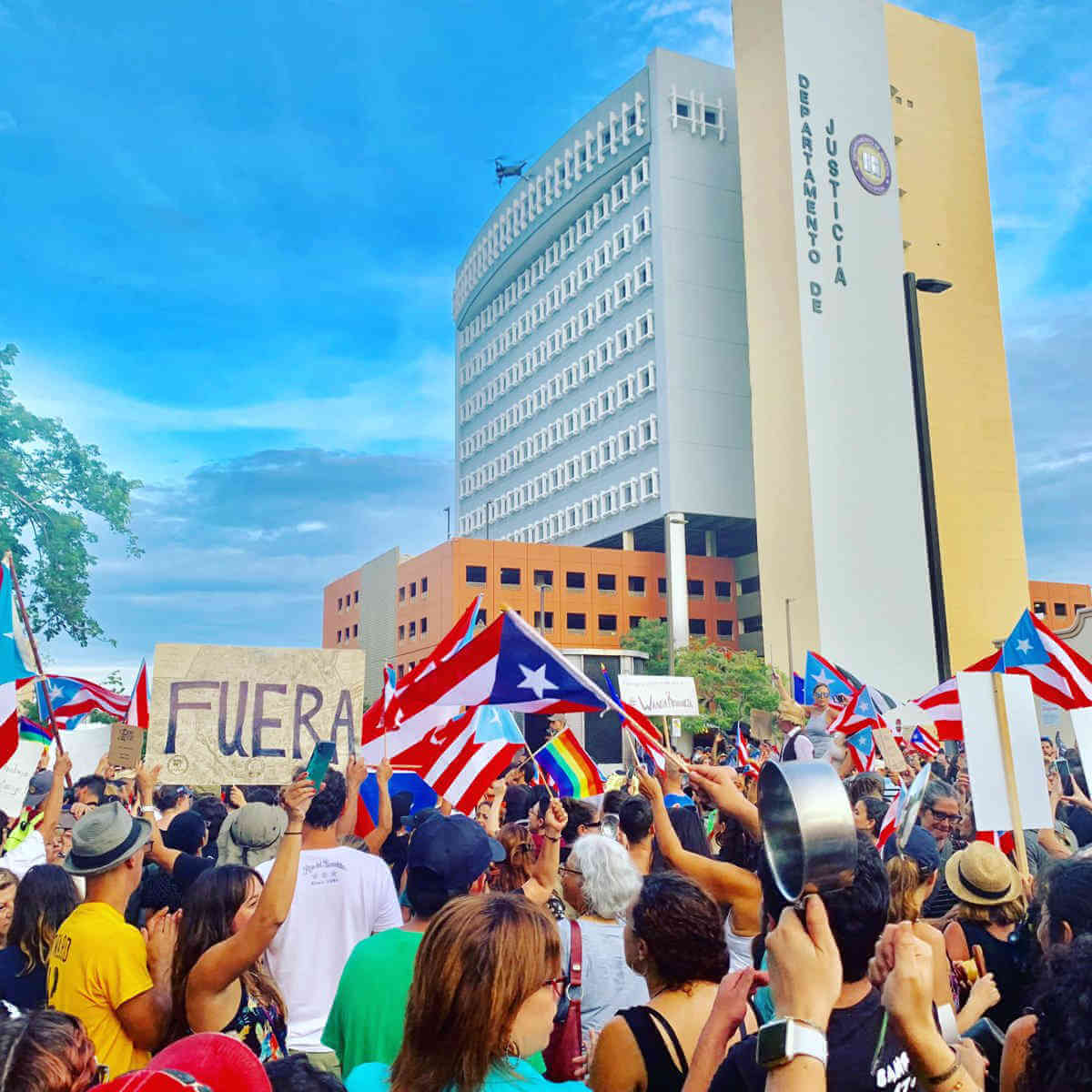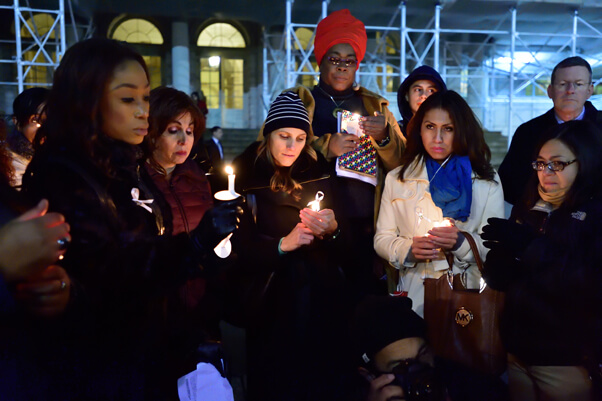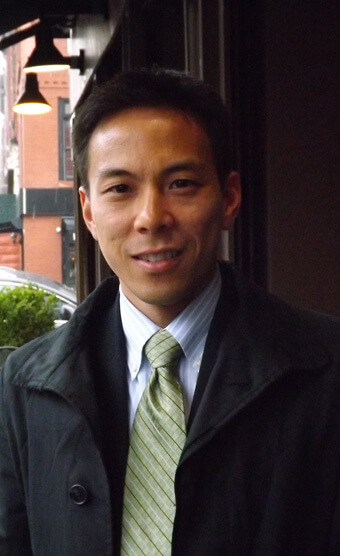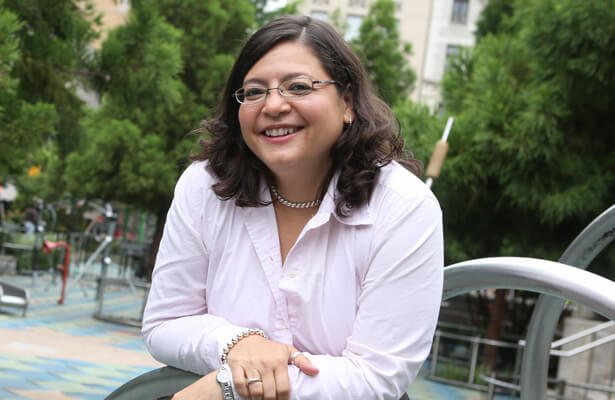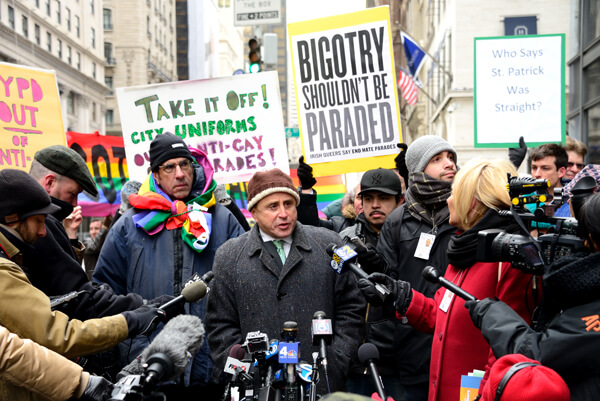A week after Puerto Rico Governor Ricardo Rosselló finally caved in to days of protests, announcing he would resign on August 2, the citizens of Puerto Rico who turned out in unprecedented numbers to protest revelations of both corruption and shocking misogyny and homophobia among his inner circle are not yet resting on their laurels.
Instead, they are keeping up pressure on the current ruling clique by demanding that Justice Secretary Wanda Vázquez, currently next in line to be governor, not take office on Friday.
“We’re still in the middle of the fight,” said Pedro Julio Serrano, an out gay senior advisor to San Juan Mayor Carmen Yulín Cruz. “Right now, [Vázquez] is poised to become governor if there is no nomination for secretary of state. But the people have said she cannot be the governor. She has not been following up on investigations of corruption in the current government.”
Under the Puerto Rico Constitution, a vacancy in the governor’s office is filled by the secretary of state, and if that post is vacant the justice minister is next in line. Luis G. Rivera Marín, who had been secretary of state, was among the first casualties of the scandal that eventually engulged Rosselló, resigning his office on July 13.
The current shakeup follows demonstrations across the island and in many US cities that emerged after Puerto Rico’s Center for Investigative Journalism leaked details of homophobic and sexist chats between the governor and his top aides. In the chats, officials called former New York City Council Speaker Melissa Mark-Viverito a “whore,” said out gay celebrity singer Ricky Martin “fucks men because women don’t measure up,” and threatened to “shoot up” San Juan Mayor Carmen Yulín Cruz.
The governor and other top government officials were already under fire before the chats were revealed due to ongoing corruption problems on the island stemming from the handling of hurricane relief and the fallout from a financial crisis that has plunged the island into debt.
Rosselló announced his resignation through a recorded video posted on Facebook late in the evening on July 24. Even as his critics poured into the streets to celebrate, they vowed to continue pressuring the government until the ongoing problems plaguing the island are alleviated.
“We are joyful and happy, but we are still fighting and there is still more work to do,” Serrano, who prior to serving as an advisor to Cruz worked under Mark-Viverito in the New York City Council, told Gay City News last week. “There is so much corruption and so much discrimination. This is only the beginning.”
This week, Serrano elaborated on ongoing risks that demonstrators in San Juan worry about. While Vázquez has signaled she is unenthusiastic about becoming governor, she has not taken herself out of the running.
In a July 28 tweet, she wrote, “I reiterate, I have no interest in occupying the governor’s post. It is a constitutional rule. I hope the governor identifies and submits a candidate for the position of secretary of state before Aug. 2, and I have told him so.” The following day, her spokesperson said she would take the oath of office on Friday absent any change in the current line of succession.
According to Serrano, protesters worry that the power brokers surrounding the current governor are working behind the scenes either to put a new secretary of state and heir-apparent in place before Friday or expect Vázquez to take office, name a new secretary of state of that group’s choosing, and then resign.
Either way, the name most often discussed among Rosselló’s critics — and others — is Senate President Thomas Rivera Schatz, who took over as head of the New Progressive Party (NPP) when the governor gave up the post in an early, unsuccessful effort to stanch the outcry overwhelming his administration.
“He is more homophobic and more misogynistic than the current governor,” Serrano said of Rivera Schatz. “He is a mini-Trump in some ways. He and the current governor are from same party. They have been allies in the past.”
There is no direct correlation between political parties in Puerto Rico and on the mainland, and some NPP members, like Rosselló, are aligned with the US Democratic Party, while others, like Rivera Schatz, are affiliated with the Republicans.
Serrano described the current mood in Puerto Rico as “a very tense calm,” adding, “This is a constitutional crisis, a political crisis, and a social crisis.”
Having participated in a massive protest Monday in San Juan, he said another demonstration was planned for Friday as a countdown to Rosselló’s 5 p.m. departure from office. The demonstrators have not put forward specific names of who might be acceptable to take the reins of government. People on the street, Serrano said, are pressing for “a consensus figure, not anyone related to the current controversy and someone with no history of homophobia, misogyny, and abuse of power.”
Demonstrators in New York’s Union Square on July 18 agreed with that outlook. Puerto Rico native Samy Nemir-Olivares noted that, among numerous changes necessary for a prosperous Puerto Rico, other corrupt government officials need to step down even after Rosselló exits.
Last week, Serrano told Gay City News that the homophobic and sexist language used in the texts proved to be the most significant components that fueled the surge in protests that swept the governor aside. That was on display last week when Martin was among these seen waving a large Rainbow Flag during protests.
Serrano’s boss, Mayor Cruz, who identifies with the mainland Democratic Party, intends to seek the nomination of her party, the Popular Democratic Party, in next year’s governor’s race.


